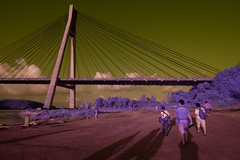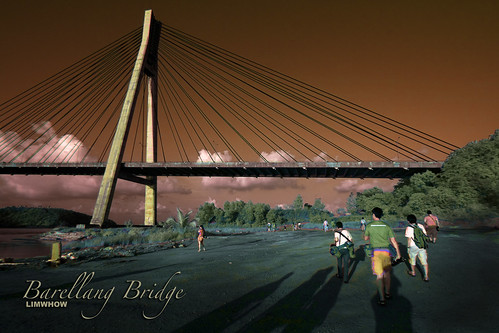Hey all.
So I was looking at some infrared photos and would like to try playing around with it. Most of them seem to be shot with converted cams.
I was wondering if the effect when using IR filters will look similar to those shot with converted cams?
I don't have any old dslrs to convert so if using a filter can achieve some decent results, I might get one.
Please advice! Thanks!
So I was looking at some infrared photos and would like to try playing around with it. Most of them seem to be shot with converted cams.
I was wondering if the effect when using IR filters will look similar to those shot with converted cams?
I don't have any old dslrs to convert so if using a filter can achieve some decent results, I might get one.
Please advice! Thanks!




